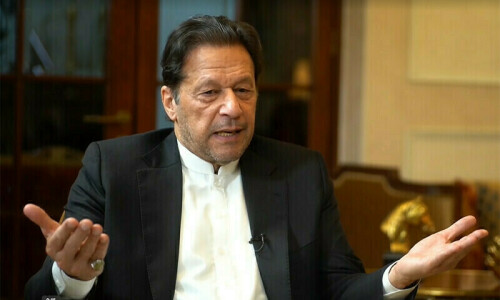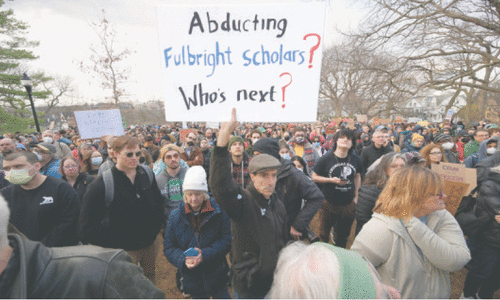
IN the 90s, Prof Saba Dashtiyari was consumed by Balochi, his comrades claim.
The renowned poet and writer was born in Lyari but did not fall in love with the language till he started teaching Islamic Studies at the University of Balochistan. He wanted people to understand and appreciate this language that no one seemed to be interested in anymore.
In 2003, he laid the foundation stone of a centre that would help achieve this dream. By 2005, with a couple of like-minded friends, he had managed to set up the Sayad Hashmi Reference Library in Malir. Named after one of the first Baloch writers, the library was a place where all published and unpublished materials on the Baloch people, the Balochi language, and Balochistan could be preserved.
However, after he was shot dead in 2011, running the centre became difficult.
According to Haji Rasool, a librarian at the reference library, their main focus is to preserve Baloch language and literature. Dusting off a copy of Lenin’s biography, he says: “We have done a lot of work in terms of the language. Till last year we used to teach the language at the beginner and certificate levels, and hope to start again next year. We also used to supply language and grammar books to private schools in Balochistan. But now, due to the law and order situation, we do not. Things have changed.”
The library has more than 5,000 books in Balochi, on various topics including science, religion, philosophy, translations of the Holy Quran and the Bible, a translation of Khalil Gibran’s poems, history and political thought. They also have a vast collection of old Balochi newspapers and magazines including Oman and Nawa-e-Watan.
As we sit in his office overlooking a lush green garden, Mr Rasool explains that since they do not receive any funds from the government, they depend on donations and the youth to help them out. “One of the reasons we had to discontinue our language courses is because the boys who used to work with us had to move away for work,” he explains, adding that the language was also taught in different areas of the city such as Lyari and different towns in Balochistan using their course books.
“Language is like a bouquet of flowers,” he muses. “If you look at any language in the world, it has its own importance and beauty. A language can express centuries of emotion in a few words. I believe that if you want to create beauty in the world it is important to ensure the survival and growth of your mother tongue and other languages.”
“Balochi is a beautiful language that developed centuries ago,” he goes on to say. “Over time, the language has evolved. People who reside on the Iran side of the border speak it with a bit of Persian, those who live towards the Afghan side have a hint of Pashto and those who live closer to Sindh speak Balochi with a Sindhi influence. To ensure the survival of a language it is important that the common man has access to it.”
According to Mr Rasool, over the years Balochi poetry has become quite popular and many books have been published recently. “I must be honest, though,” he adds. “Not much has been done in or for Balochi — but at least something has been achieved.”
Zareef, a regular visitor to the library, believes that the only way Balochi can survive is if the Baloch people embrace it openly. “There was a time when, if we went to apply for jobs, people would just look the other way when they found out that we were Baloch,” he says. “When we realised that no one loved our language, we decided that the only way our language could survive is if we instil that love in our children — our future.”
An estimated seven million people in the country speak Balochi as their first or second language. As a member of the Indo-Iranian branch of the Indo-European language family, Balochi has suffered a lot due to the unstable law and order situation in the province. Today, it is mostly spoken at home or within a community.
Published in Dawn, November 19th, 2017














































